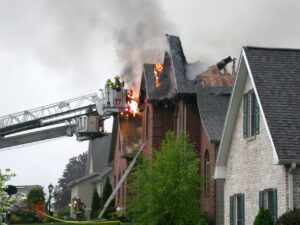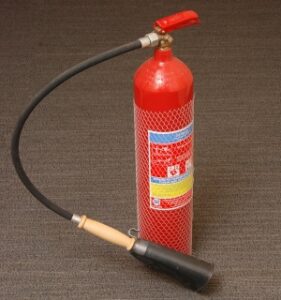What can you expect after you’ve had a fire at your property? Well that’s highly dependent on the extent of damage the fire caused. We’ll explain here some typical expectations after a fire that has caused a decent amount of damage to the property.
The first 24 hours after a fire:
The fire department has wrapped up from extinguishing the flames. You’ll need confirmation from the fire department that it is safe to enter the property.
Contact your insurance company and start a claim. Make sure to ask them for a claim number when reporting.
- TIP: Save important information such as policy numbers, important telephone numbers, and insurance contacts on a cloud based storage and/or on your mobile phone. If these options aren’t available to you, store them at a secure off-site location.
Be prepared: Different restoration companies may arrive on site after hearing of the fire, eager to assist you. You’ll want to hire someone for the initial board-up services to secure the doors, windows, or any other areas exposing the house to the elements or theft. If you already have one in mind, give them a call a.s.a.p.
- TIP: This can be a mentally taxing time. Save yourself confusion and anguish by doing your research before the fire. Search your local fire damage restoration company options. Don’t hesitate to call, request references, and ask questions. Save their information off-site, on the cloud, and or/on your mobile phone for easy reference, just like you would those important insurance and policy numbers.
Make sure that the power and gas companies have been notified that the house had a fire. Depending on the size of the fire, the fire department may have the companies pull the meters from the property.
The next few days after a fire:
You’ll be getting a call from an adjuster to schedule a meeting at the property. During this appointment for the initial walk-through, both the restoration company manager and the insurance adjuster should be present, so you may want to give the restoration company a call. The main purpose is to address the factors of contents, temporary living, and timeline of the restoration. By working with the insurance company directly and coming to an agreement on the scope of work, the entire process runs more efficiently.
If the fire was severe enough, use this time to call your cable, phone, and alarm companies to put a temporary hold on your services.
With approval, debris removal and pack-out services may commence.
- TIP: Keep a home inventory list! Having all this information on file can do wonders for expediting the contents claiming. Depending on the extent of the fire, some contents may be unidentifiable. Make sure everything is claimed at its value by updating this list often and keeping it in a safe place. Knowyourstuff.org is one of many great resources for doing so. They even have a mobile application!
The next few weeks
The insurance company will agree on a scope of work. This will detail what the insurance company is allowing to be done.
The restoration company will apply for the appropriate permits. Dumpsters or storage pods may be delivered to the property. Debris removal and pack-out services will commence if they haven’t already.
Unless it’s already been covered, the restoration company may want to review the scope of work with you, making sure you understand exactly what the insurance company is expecting.
Demolition of damaged areas will commence as necessary.
Your restoration company will work as efficiently as possible to give you back your property completely restored. The timeline depends on the extent of the fire damage, selection decisions and ordering of materials, and how responsive you are to insurance and mortgage company requests.
The Final Conclusion
Each fire loss has its own unique process based on how many variables there are to be considered. Being prepared with an inventory list, off-site and mobile stored policy/contact information, and pre-loss research on reliable restoration companies is important to every one of them.

